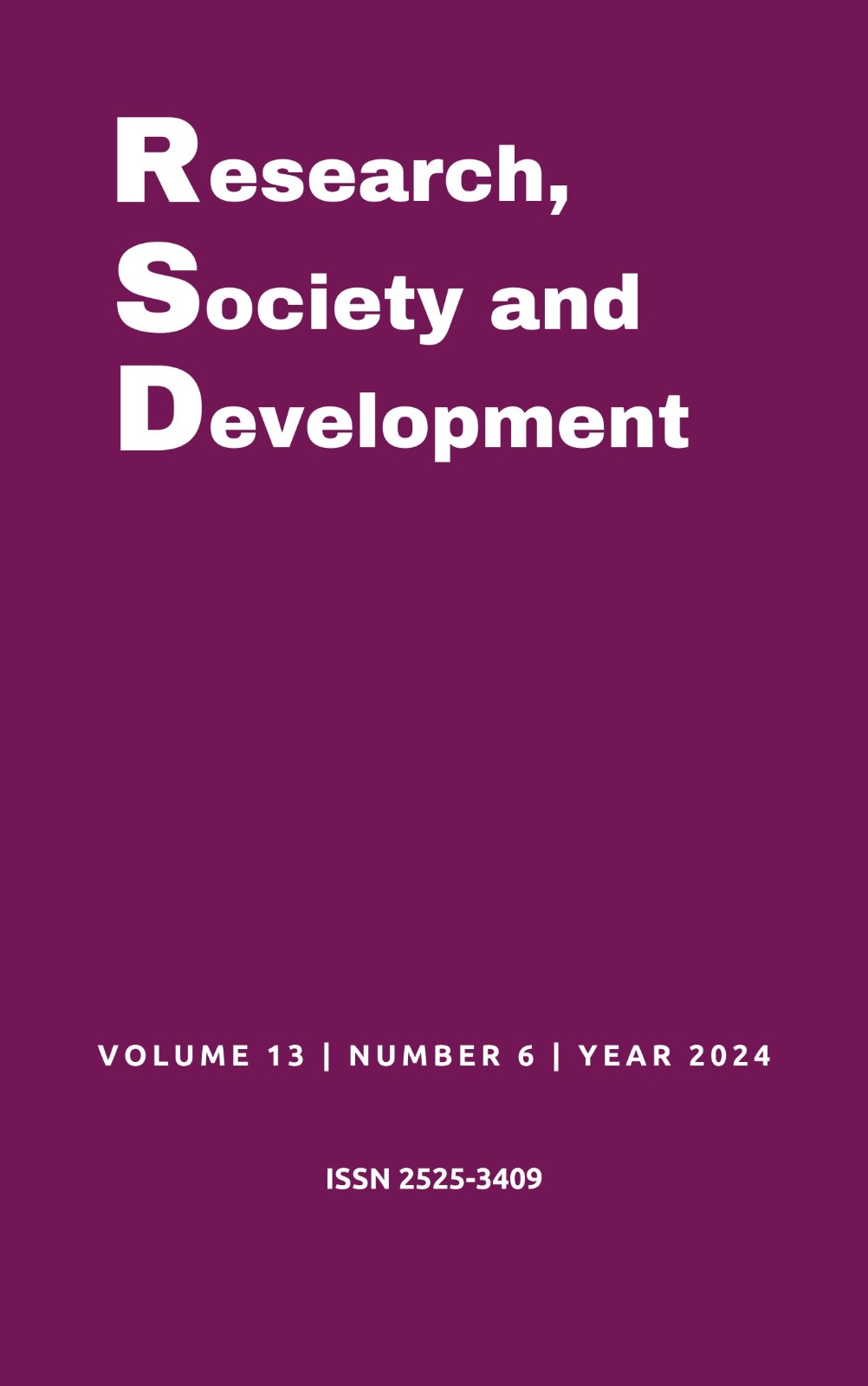Uberization and employment relationship: An analysis of flexibility and social protection
DOI:
https://doi.org/10.33448/rsd-v13i6.45951Keywords:
Uberization, Employment relationship, Labor regulation.Abstract
The history of human labor has been marked by transformations influenced by the evolution of the means of production and social demands. In Brazil, the rise in unemployment has led many to become informal workers, especially transportation and delivery apps. This article aims to analyze the impact of uberization on the definition of the employment relationship, focusing on the requirements of the employment relationship and the situation of app drivers, considering the possible paths of labor regulation. The methodology used to carry out this study is documentary, qualitative and reflective research. The study examines Brazilian labor legislation, which defines the employment relationship on the basis of personality, non-occurrence, remuneration and legal subordination. Uberization, characterized by flexibilization and deregulation, presents regulatory and economic challenges. Case law shows divergences in the interpretation of the employment relationship between drivers and digital platforms, with decisions both in favor and against recognizing this relationship. This decision could redefine labor legislation in the face of new forms of work. While uberization offers employment alternatives, it also poses risks of job insecurity. A balanced approach that protects workers' rights while reaping the benefits of technological innovation is essential.
References
Baboin, J. C. de C. (2017). Trabalhadores sob demanda: O caso Uber. Revista Ltr: Legislação do Trabalho, 81(3), 332-346. https://juslaboris.tst.jus.br/bitstream/handle/20.500.12178/106368/2017_baboin_jose_trabalhadores_demanda.pdf?sequence=1&isAllowed=y .
Brasil. (1943). Decreto-lei nº 5.452, de 1 de maio de 1943. Aprova a Consolidação das Leis do Trabalho. Lex: coletânea de legislação, edição federal, 7, 1943.
Brasil. (2017). Lei n. 13.467, de 13 de julho de 2017. Altera a Consolidação das Leis do Trabalho (CLT), aprovada pelo Decreto-Lei n. 5.452, de 1º de maio de 1943. Diário Oficial da União: seção 1, Brasília, DF, ano 154, n. 134, p. 1-7, 14 jul. 2017.
Cebrap. (2023). Mobilidade urbana e logística de entregas: um panorama sobre o trabalho de motoristas e entregadores com aplicativos. Centro Brasileiro de Análise e Planejamento (Cebrap). https://cebrap.org.br/wp-content/uploads/2023/05/Amobitec12mai2023.pdf
Cotrim, G. (2012). Metodologia do Ensino e Pesquisa em Direito. São Paulo: Editora Atlas.
Delgado, M. G. (2019). Curso de Direito do Trabalho: obra revista e atualizada conforme a lei da reforma trabalhista e inovações normativas e jurisprudenciais posteriores (18ª ed.). São Paulo: LTr.
Diniz, M. H. (2011). O Método da Pesquisa Jurídica. São Paulo: Saraiva.
Franco, D. S. & Ferraz, D. L. D. S. (2019). Uberização do trabalho e acumulação capitalista. Cadernos EBAPE.BR. 17, 844–56. https://www.scielo.br/j/cebape/a/9NJd8xMhZD3qJVwqsG4WV3c/?format=pdf&lang=pt.
Firmino, V. H. (2018). Como a Uber contribui para a precarização do trabalho na modernidade. https://vitorfirmino.jusbrasil.com.br/artigos/534725925/como-a-uber-contribui-para-a-precarizacao-do-trabalho-na-modernidade .
Galli, R. A. (2016). Direito do trabalho I. SESES.
IBGE. (2024). Desemprego. https://www.ibge.gov.br/explica/desemprego.php
Lamy, E. A. (2010). Metodologia da Pesquisa Jurídica: Teoria e Prática. Editora Revista dos Tribunais.
Martinez, L. (2009). Curso de Direito do Trabalho. Saraiva.
Slee, T. (2017). Uberização: a nova onda do trabalho precarizado. Editora Elefante.
Sousa, E. J. S., & Meinberg, M. O. (2020). A “uberização” e o aprofundamento da flexibilização do trabalho. Revista Princípios, 159, jul.–out. https://revistaprincipios.emnuvens.com.br/principios/article/download/12/5/
TRT. (2019). Recurso Ordinário Trabalhista 0100853-94.2019.5.01.0067. Tribunal Regional da 1ª Região. https://www.conjur.com.br/dl/tr/trt-reconhece-vinculo-emprego-entre3.pdf
TST (2019). Recurso Extraordinário nº 1446336. Recuperado em 21 de março de 2024, de https://portal.stf.jus.br/processos/detalhe.asp?incidente=6679823
TST (2022). Recurso de Revista com Agravo nº TST-RRAg-100853-94.2019.5.01.0067. Acórdão da 8ª Turma do Tribunal Superior do Trabalho. Decisão proferida em 2022. https://www.conjur.com.br/wp-content/uploads/2023/09/decisao-uber-tst.pdf
TST. (2020). TST-AIRR-10575-88.2019.5.03.0003. Acórdão da 4ª Turma do Tribunal Superior do Trabalho. Decisão proferida em 2020. https://consultaprocessual.tst.jus.br/consultaProcessual/consultaTstNumUnica.do?consulta=Consultar&conscsjt=&numeroTst=10575&digitoTst=88&anoTst=2019&orgaoTst=5&tribunalTst=03&varaTst=0003&submit=Consultar
Downloads
Published
Issue
Section
License
Copyright (c) 2024 Lana Larissa Ribeiro Jorge Américo

This work is licensed under a Creative Commons Attribution 4.0 International License.
Authors who publish with this journal agree to the following terms:
1) Authors retain copyright and grant the journal right of first publication with the work simultaneously licensed under a Creative Commons Attribution License that allows others to share the work with an acknowledgement of the work's authorship and initial publication in this journal.
2) Authors are able to enter into separate, additional contractual arrangements for the non-exclusive distribution of the journal's published version of the work (e.g., post it to an institutional repository or publish it in a book), with an acknowledgement of its initial publication in this journal.
3) Authors are permitted and encouraged to post their work online (e.g., in institutional repositories or on their website) prior to and during the submission process, as it can lead to productive exchanges, as well as earlier and greater citation of published work.


